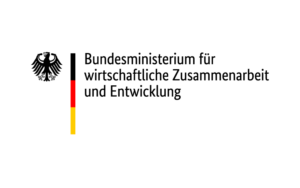‘The energy future of West Africa.
People. Competences. Technologies.’
Report
to the WORKSHOP
Wednesday, 11 October 2023 | 10 a.m. – 5 p.m.
HAW Hamburg | Building BT 21 | Room 202
Berliner Tor 21 | 20099 Hamburg
Sun and wind are key to West Africa’s economic future
On 11 October 2023, over 40 participants from universities and the energy industry exchanged ideas at the workshop Energy Future West Africa – People. Skills. Technologies.’ workshop, over 40 participants spent a day intensively discussing the use and expansion of renewable energies in West Africa.
Sun and wind are the pillars of a climate-neutral energy supply. West Africa has plenty of both. Senegal has set itself ambitious targets to reduce CO2-emissions in the energy sector. By 2030, 40 per cent of electricity is to come from renewable sources.
To achieve this, the country needs skilled workers with the right qualifications. In the COoperation To Focus on Renewable Energy Education (CO2FREE) project, the Hamburg University of Applied Sciences (HAW) and the École Supérieur Polytechnique (ESP) in Dakar are developing a future-oriented Bachelor’s degree programme in ‘Renewable Energies’. Prof Dr Anna K. Usbeck (HAW Hamburg), who presented the project at the beginning of the workshop, and Prof Lamine Thiaw (ESP) are in charge of the programme. The industrial partners involved are SMA Solar Technology, Kassel and SATEC – Société Africaine de Téchnologies, Dakar.
The lively exchange between companies and academia was enriching for the participants. Mark Kragh, founder and technical director of Off-Grid Europe GmbH (OGE), reported on the challenges of setting up a decentralised solar-based power supply. His company is part of the ASER300 project in Senegal, where it is electrifying more than 200 villages.
Boris Westphal, CEO Business Unit Renewables at Dornier Suntrace GmbH, shared insights on the use of renewable energy in West African mining operations. He explained how integrating solar and other renewable solutions helps to significantly reduce CO2 emissions from these highly energy-intensive sites.
He also pointed out a noteworthy challenge in cross-border collaboration: according to his experience, it is almost impossible to secure official appointments for visa applications through the German Embassy in Dakar, which poses a considerable obstacle for business cooperation in the region.
Romana Hartke, Senior Business Development Manager at Mainstream Renewable Power, spoke about her employer’s global activities in the expansion of wind energy and Dr Jens Eiko Birkholz, Head of Sales & Business Development at SMA, provided information on ways to ensure the quality of decentralised solar power generation.
Senegal and the other countries in West Africa could produce huge energy surpluses thanks to their abundance of sun and wind. Sebastian Timmerberg, Professor of Environmental Process Engineering at the Faculty of Life Sciences at HAW Hamburg, presented technological approaches to transporting the energy generated there to Europe in the form of green hydrogen. The African perspective was provided by Michelle I Olufesu from CODAHEA (Consortium for the Development and Advancement of Hydrogen Economy in Africa), who reported on approaches to establishing a hydrogen economy in West Africa.
The event concluded with working rounds in a world café format. Here, the participants discussed the various aspects of the expansion of renewable energies in West Africa and developed approaches for solutions in the three dimensions of people, skills and technologies. The clear conclusion: there are great opportunities, but we must not repeat the mistakes of the past; instead, we must adapt to the people and the framework conditions on the ground.
The workshop was moderated by Christoph Porschke. Angela Wittchen from Illu Front recorded the content in the form of graphic recordings.
Dieses Projekt wird gefördert vom DAAD aus Mitteln des Bundesministeriums für wirtschaftliche Zusammenarbeit und Entwicklung (BMZ).


